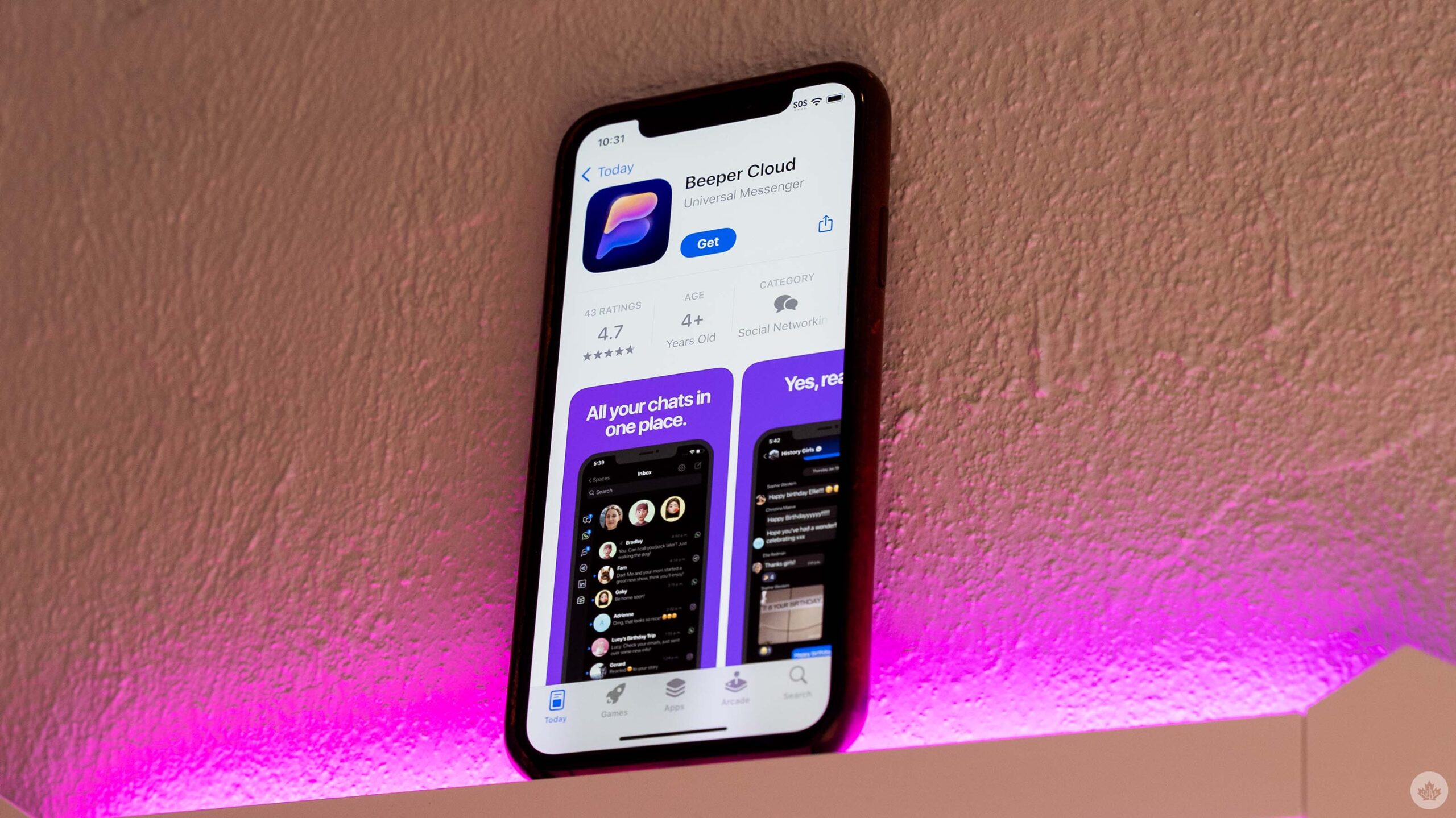
Beeper, the company from Canadian Pebble founder Eric Migicovsky that’s behind the iMessage on Android app Beeper Mini, disabled the ability for users to create new iMessage connections for its Beeper Cloud app.
The move comes after Apple started banning Mac computers that had been used to set up iMessage connections to enable iMessage conversations within Beeper’s apps. Banned Macs were unable to send or receive iMessages from the macOS Messages app. It’s the latest chapter in an ongoing battle between Beeper and Apple over the iMessage platform.
Beeper has long offered an app allowing people to loop multiple chat platforms into one place. That included platforms like WhatsApp, Telegram, Facebook Messenger and, yes, even iMessage. Last year, Beeper turned the app into Beeper Cloud and launched another app called Beeper Mini focused solely on enabling iMessage conversations on Android. Beeper Mini briefly allowed Android users to sign up for iMessage using just their phone number and start chatting with the much-vaunted blue bubbles.
Unsurprisingly, Apple wasn’t a fan of this and quickly moved to break Beeper Mini. That started a weekslong back-and-forth of Apple implementing changes to break Beeper Mini and Beeper rolling out tweaks to get things working again. At the end of December, Beeper gave up, with Migicovsky writing in a blog post that the company “can’t win” against Apple. Beeper released one final Mini update and said it wouldn’t do anything else if Apple broke things again. Instead, the company planned to focus on its core Beeper Cloud app rather than put effort into Beeper Mini. In January, reports surfaced that Apple was banning Macs that had been used to create Beeper Cloud connections, and Beeper has now released more details about those bans.
Mac bans reversed after Times investigation
Full details
We’ve received and authenticated reports from 30 Beeper users who’ve had their personal Mac computers banned from using iMessage. These users configured Beeper (Cloud or Mini) iMessage connection to use their Mac, as per our December 21 update.
We are taking this…
— Beeper (@onbeeper) January 26, 2024
First, Beeper noted in a series of X/Twitter posts about the bans that following a New York Times investigation, Apple started unbanning Macs. In total, Beeper says it received and authenticated 30 reports of Beeper users who had Macs banned from accessing iMessage, and the company stressed the bans weren’t a widespread issue. Moreover, Beeper says that all the reports were from Apple customers who own Mac computers and that those users weren’t sharing their Mac or registration code with anyone else. The bans also didn’t impact Apple IDs, so iMessage continued to work on other Apple devices owned by individuals with banned Macs.
According to Beeper, Apple didn’t warn any of the people who were banned, and Apple Support claimed that the Macs were banned due to ‘spam.’ Beeper believes this is a change that Apple made since prior to December 21st, Beeper had used a system of Mac Mini computers to generate registration data for Beeper users. None of those machines were hardware banned from iMessage (though it is worth noting that Apple previously used the registration data from these machines to block iMessage for some Beeper Mini users).
Finally, Beeper says it started receiving reports on January 24th that affected Macs were no longer banned. The company has asked affected users who haven’t been unbanned yet to reach out to Apple Support and to report the ban to Beeper using the app’s ‘report a problem’ function so it can document the case.
Because of all this, Beeper disabled users’ ability to start new iMessage connections in Beeper Cloud. Moreover, Beeper shared how to disconnect iMessage from Beeper for users who want to avoid problems like this, though the company also tweeted that it doesn’t think Apple will “try this bullshit again.” Still, if you want to disable the connection, you can open the Beeper Desktop app and click the gear icon > Chat Networks > iMessage > Delete.
Despite all this, Beeper is continuing to argue against Apple’s efforts to limit iMessage availability. In another series of tweets, Beeper points out that Apple claims it’s taking these actions because Beeper poses “significant risks to user security and privacy.” However, Beeper says that its app simply acts as a third-party client and operates on users’ own computers with users’ own real credentials. Beeper thinks Apple shouldn’t be able to ban users without warning just because they used a third-party client.
While I’m inclined to agree, I also think that anyone who values messaging that works well, regardless of which device participants use, would be better served by abandoning iMessage altogether. Apple has made it abundantly clear that it doesn’t want to play nice with others and the iPhone maker was largely forced by regulatory pressure to adopt the RCS standard used basically everwhere else. RCS support should improve the messaging experience between iPhone and Android once it arrives, and if you can’t wait that long, there are tons of excellent, free chat apps you can use now for a better messaging experience.
Source: @onbeeper Via: Android Police
MobileSyrup may earn a commission from purchases made via our links, which helps fund the journalism we provide free on our website. These links do not influence our editorial content. Support us here.


